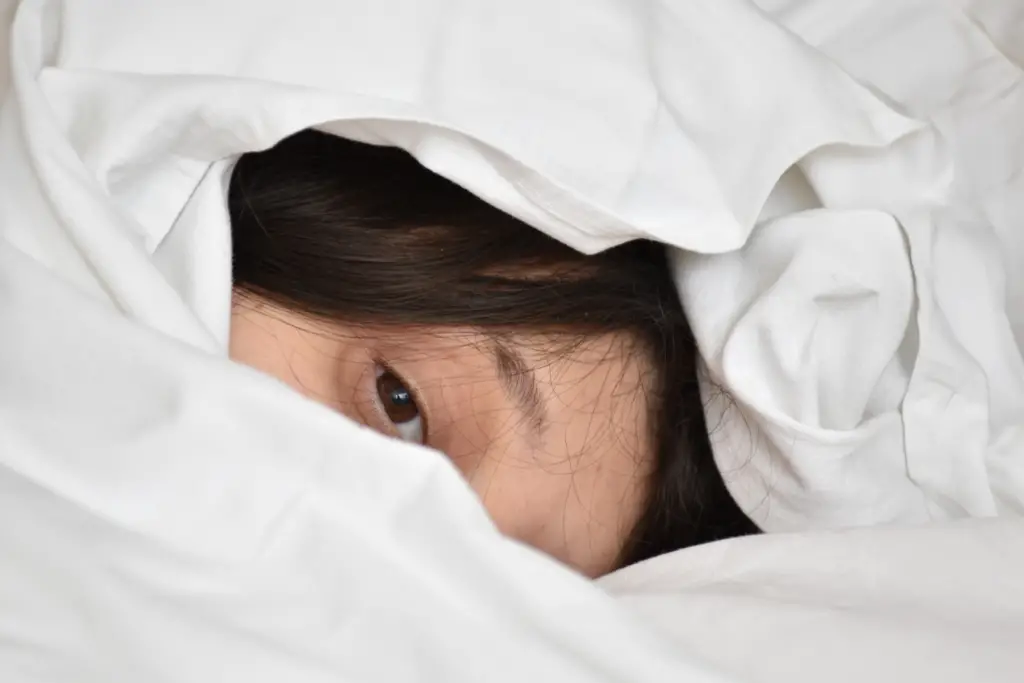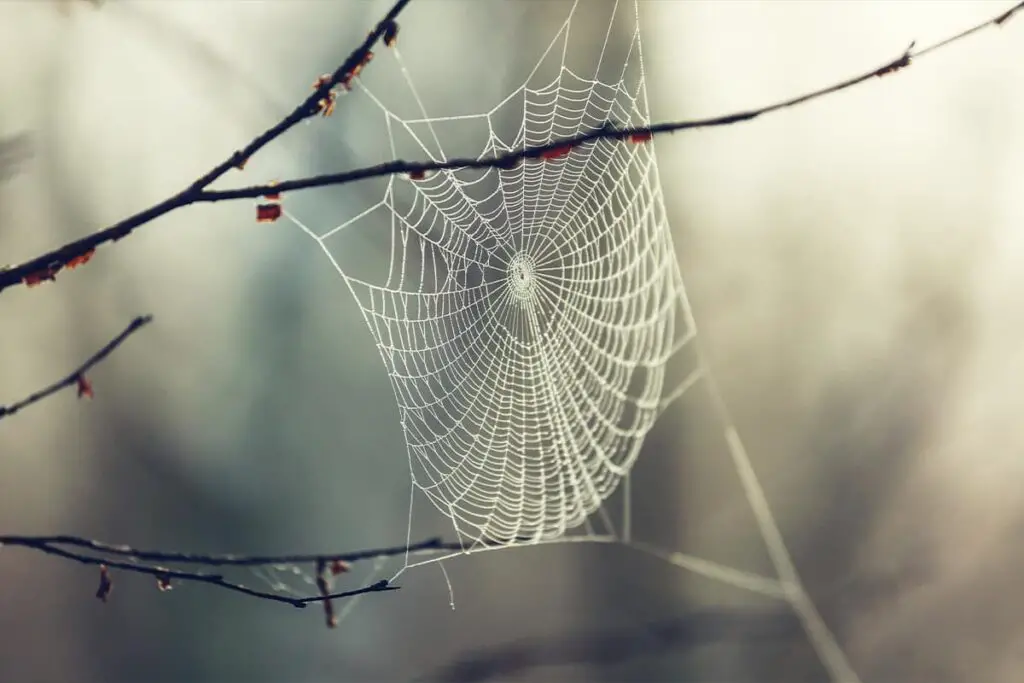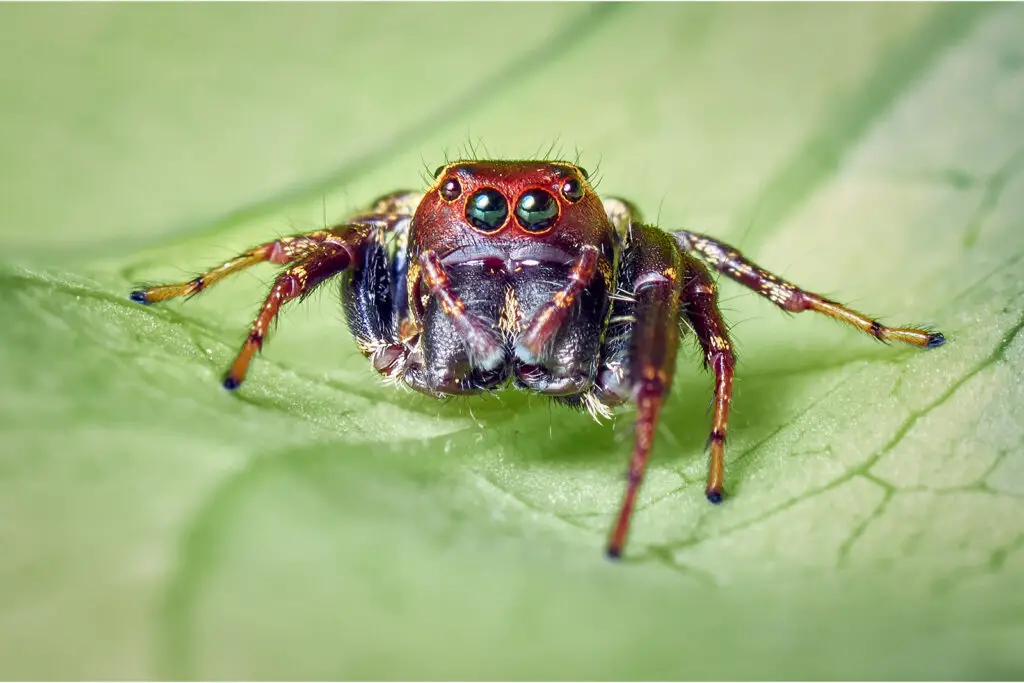
Sleep is your sanctuary, a time for rest and recovery. However, a pesky question seems to haunt our peaceful slumber: Do bugs crawl into our mouths while we sleep? The thought alone might trigger a shiver down your spine, envisioning these tiny trespassers making their way into your personal space. Rest assured, despite the persistent myth, your chances of such night-time intruders are remarkably slim.
Spiders and other bugs typically avoid humans, and your mouth isn’t the attractive destination urban legends have made it out to be. In fact, scientific research has debunked the notion that we routinely swallow spiders or any other insects in our sleep. So, although a random incident could occur, it’s definitely not a nightly occurrence or something that you should expect to happen many times throughout your life.
Understanding the biology and behavior of spiders and insects can reassure you that these creatures are not seeking to dive into your mouth. They’re much more interested in survival, which involves staying away from human giants like you. With this knowledge, you can lay your head down tonight with a little less worry, confident that your body’s natural defenses and the unlikelihood of the scenario are on your side.
Myths About Bugs and Sleep
In discussing myths about bugs and sleep, it’s essential to understand where these tales come from and the actual nighttime activities of insects.
Origins of Sleep Myths
Some myths about bugs and sleep, like the notion that you swallow eight spiders a year while sleeping, are based on folklore or misrepresented facts. This particular myth gained traction due to its viral nature, despite its inaccuracy as pointed out by Scientific American. Another possibility is that these myths arise from a general fear or misunderstanding of insects and their behaviors.
Common Insect Behavior at Night
Most insects, including spiders, have survival instincts that typically keep them away from larger predators, like humans. Spiders, for example, do not intentionally approach humans; they prefer environments where they can find their prey undisturbed. Sleep Foundation describes most spiders as harmless, and they are more interested in catching other insects rather than exploring your bed.
Human Mouth Environment
In considering what might enter your mouth as you sleep, it’s crucial to understand the environment within your mouth, which is primarily regulated by saliva and generally unappealing to most insects.
Saliva and Its Role
Saliva plays a pivotal role in maintaining your mouth’s ecosystem. It’s not just there to help you digest food. Saliva serves multiple purposes: it moistens your mouth, making it inhospitable for most insects, and it contains enzymes that break down food particles, which in turn discourages bugs from exploring your mouth as a food source.
Unattractiveness for Insects
Your mouth, while it might seem like a warm and inviting place, is actually quite unattractive to most insects for various reasons:
- Temperature and humidity: Insects prefer environments that are not subjected to the fluctuations caused by your breathing patterns.
- Movements: The involuntary movements of your mouth and tongue while you sleep are likely to deter any curious critters.
- Saliva: The consistent production of saliva could be an unwelcome element for insects, as its properties are designed to break down organic matter—not a pleasant feature for potential bug visitors.
Actual Risks of Insect Presence
While the thought of swallowing spiders in your sleep is mostly a myth, there are some legitimate concerns related to insects in the proximity of your sleeping area that you should be aware of.
Insect Bites and Stings
You might encounter insects such as mosquitoes or bed bugs while you sleep; their bites can cause irritation, itching, and discomfort. In rare cases, if you’re allergic, reactions can be severe. It’s important to maintain a clean sleeping area to minimize these risks.
Health Concerns
Beyond the annoyance, certain bugs are vectors for disease. Mosquitoes can carry malaria or Zika virus, and ticks might transmit Lyme disease. Prioritize protective measures like nets and repellents if you’re in an area known for such insect-borne illnesses.
Frequently Asked Questions
Before diving into your questions, it’s crucial to understand that most concerns about bugs entering our mouths while we sleep are based on myths, and the actual likelihood is low. Let’s address some common inquiries you might have on the topic.
Is it true that insects can enter your mouth while you’re asleep?
While the possibility exists, it’s highly unlikely that insects will enter your mouth while you’re asleep. Spiders and other insects generally avoid humans, and the chances of them crawling into your mouth are slim.
How often do people accidentally eat bugs in their sleep?
The often-cited figure of people swallowing eight spiders a year in their sleep is a myth. In reality, the occurrence of accidentally eating bugs while asleep is rare.
What types of bugs are most likely to crawl into your mouth at night?
Most bugs, including spiders, are not inclined to approach humans. If an insect were to end up in one’s mouth by chance, it would likely be very small and not among the types considered dangerous to humans.
Can sleeping with your mouth open increase the chances of swallowing insects?
Your mouth doesn’t typically open wide enough while you sleep to provide an easy entry point for insects. Thus, sleeping with your mouth open doesn’t significantly increase the chances of swallowing them.
Are there any health risks associated with bugs entering your mouth while you sleep?
The occasional bug that may end up in your mouth is unlikely to pose any health risks. Our bodies can handle these rare incidents without any adverse health effects.
What can be done to prevent bugs from getting into your mouth during the night?
Maintaining a clean sleeping environment and using bed nets can be effective in minimizing the already low possibility of bugs getting into your mouth at night.
Driven by a passion for those tiny creatures that rule our world, we at Bug Domain strive to be your go-to resource for information on insects.



